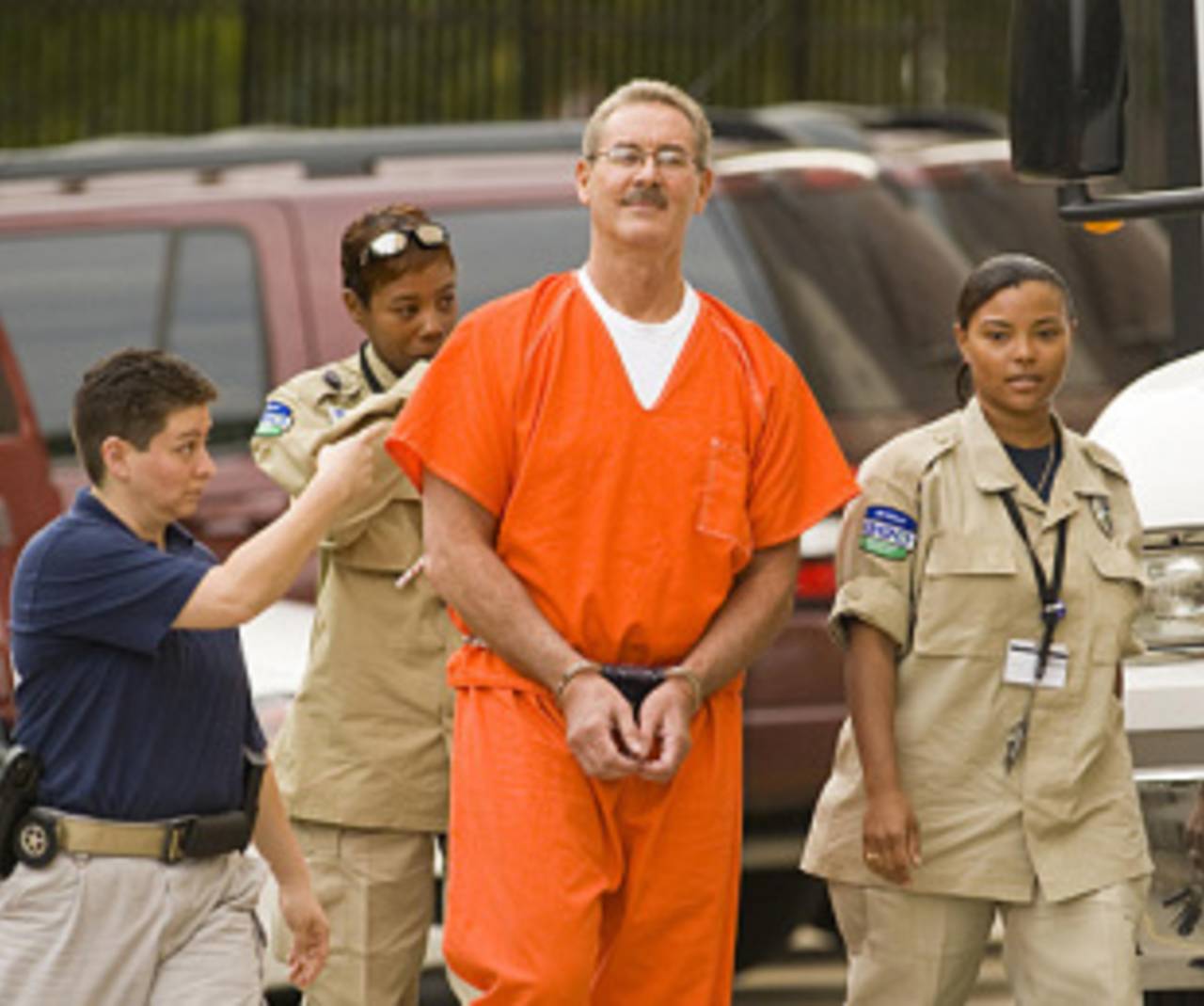The ECB's villainous stunts
Why is the England board screaming for us to rise?
Andrew Hughes
Jul 31, 2013, 11:22 AM

A former ECB darling • Getty Images
Compared to the pantomime bad guys at the BCCI, the ECB chaps are not super villains. They're a cut-price, low-fat, sugar-free kind of evil. Their underwater lair is only half the size of that of their Indian counterparts, their inter-continental death ray is solar-powered, and their raison d'etre is not to ensnare the free cricket world in the choking tentacles of their terrible wrath but to extract as much money as possible from every situation.
Giles Clarke is more Jabba the Hut than Darth Vader; he's the Sheriff of Nottingham, not King John; Fagin rather than Bill Sykes. It's not that he doesn't like the idea of world domination; it's just that he could never quite pull it off. You have to know your limitations, after all. Had the Joker found himself tricked into doing a deal with a Texan fraudster, he too might have considered early retirement from the super-villain game.
The Stanford farrago is old news, and the ECB would quite like us to move on, so obviously it's important to bring it up as often as possible. Lest we forget, five years ago this summer, Clarke agreed to lease out the English cricket team to the Harry Houdini of international finance, allowing him to use it to advertise his successful ponzi scheme, and, as a bonus, to spend quality time with the wives of prominent England players.
All of this was done in the hope of creating a rival to the IPL, and to stop England players from wanting to play T20 in India. The reader will be aware that these efforts did not meet with success. It wasn't all bad news, however. Yes, 20,000 people lost their life savings, but the ECB did come out ahead, to the tune of over $3 million, which wasn't a bad return. They've been focused on raking it in ever since.
It's important, though, for bad guys to keep their hand in, so sometimes the ECB likes to do things just for villainous kicks; which explains the "RISE" campaign. Since I don't read press releases, watch television, or pay much attention when anyone is talking to me, PR takes a while to have any effect on me, and this blot on our civilisation had completely passed me by until, recently, I noticed that some people were using #RISE on Twitter.
At first I thought it was an acronym. The Royal Institute for Silly Expressions? Ravenous Iguanas Support England? Rinse, Irrigate, Scrub, Exfoliate? I had no idea.
It turns out that RISE isn't an acronym at all, it's just capitals. So why is the ECB shouting at us like a Marine Corps sergeant in a Vietnam film? What do they mean, rise? Get out of bed? Get off the sofa? Just stand up as often as possible? I fail to see how my hauling myself out of a chair at random intervals will help England win a cricket match. Besides, standing up too often is in direct contravention of the ground rules displayed on your match ticket.
One of the posters accompanying the campaign, starring three England players against a gritty backdrop, is particularly baffling. Alastair Cook looks mildly cross, like a man who has just discovered the slugs have been at his lettuce again. Matt Prior looks like a traffic warden posing for his mug shot at the Annual Traffic Warden Awards dinner, and James Anderson's bored expression seems to be saying, "Really? That tie with those shoes?"
Perhaps the ECB was going for "rise" as in "rising from the ashes", but that doesn't make much sense either. The phoenix is reborn from the ashes of its predecessor, a symbol of renewal amid destruction. England has won the last two series against Australia and were hot favourites for this one. The last thing they want is for phoenixes to start rising from ashes. To use a popular expression, they want to keep their foot on the throat of the Aussie phoenix and ensure it doesn't get up, ever.
Anyway, while I might, on occasion, stand to rearrange my sofa cushions, or to let an elderly person have my seat on the bus, I absolutely refuse to stand up for the England cricket team, not even if Ian Bell is carrying some really heavy shopping.
Andrew Hughes is a writer currently based in England. He tweets here